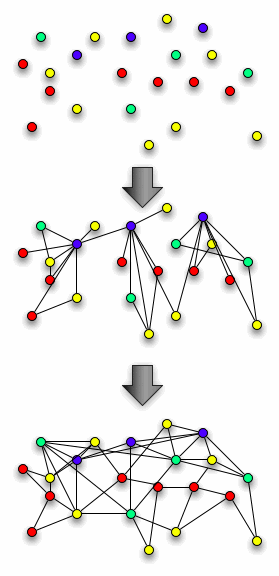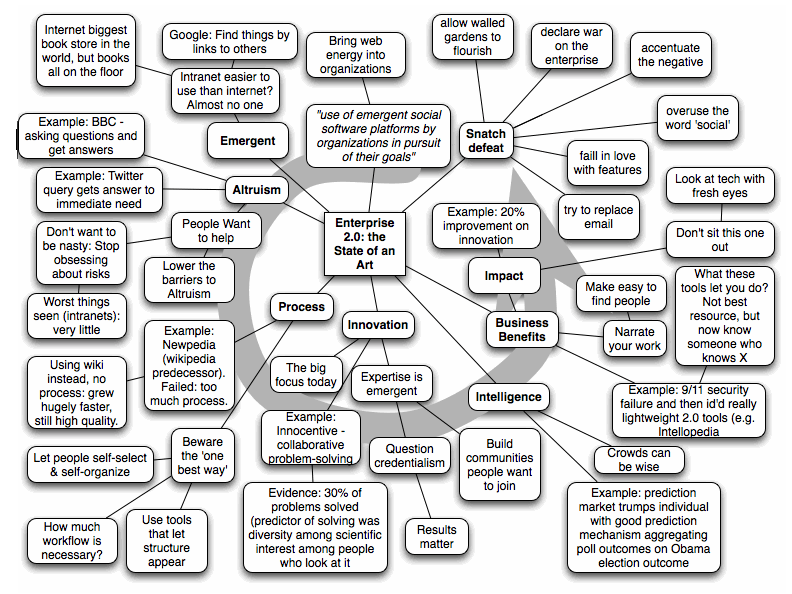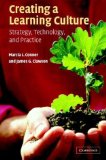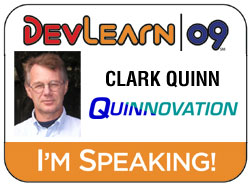Entreprise Collaborative, a cross-cultural endeavor bridging English and French to provide a jumping off point on organizational collective intelligence (and co-led by my Internet Time Alliance colleague Harold Jarche), is launching a blog carnival. The first topic is: the future of the training department in the Collaborative Enterprise.

I’ve written before about the changes I see coming for organizations (e.g. here), and they’re driven by the changes I am seeing in business and in society. Things are moving faster, and this has all sorts of consequences: it means that change is occurring more frequently, information is doubling, our competition is more aggressive, and more. Really, we’re unmasking the chaos that we’ve been able to cover with observed patterns, and explain away the excepti0ns. Well, now the patterns are changing fast enough that we can’t expect to be able to plan, prepare and execute to succeed. We have to be more nimble, more agile. In short, we have to move away from depending on formal learning to be able to cope, and we need a new solution.
The solution is to empower individuals so that they’re pulling together. No longer can a few do the thinking for everyone, as we see in a hierarchical organization. Instead, we need to make sure everyone understands what the overall goal is, and have them work together to achieve it. We need to tap into the collective intelligence of the entire organization. This is a redefinition of learning as performance, incorporating problem-solving, innovation, creativity, design, research, and more.
That means a number of things: we need to be explicit about goals, transparent about processes, supportive about collaborative skills, and proactive in creating a culture that fosters and nurtures the necessary approaches. This doesn’t come for free. Who is responsible for ensuring this works?
In some organizations it’s the information services group, or the knowledge management group. And they certainly should be on board; ideally you don’t want a hodgepodge of different systems to do the same thing, you want a coordinated environment that supports lessons learned in one area to be easily shareable elsewhere in the organization. At core, however, I believe that folks who understand learning have to be part of the picture. They may not own it, but they need to be actively facilitating across the organization.
And this, to me, defines the future of the training department. It can no longer be just about courses. It’s got to include performance support, and informal learning. It’s got to be about culture, and learning together skills, and facilitating productive information interchange and productive interactions. We have technologies now to empower user-generated content, collaboration and more, but the associated skills are being assumed, which is a mistake. The ability to use these tools will continually need updating and support.
This should not be threatening or anxiety-inducing! Training used to be important, as skilled workers were critical. As we’ve automated more work and started developing training for more knowledge work without adapting our methods (and, consequently, making generally dreadful learning experiences), the training role is less and less seen as worthwhile. The opportunity to reestablish a strategic role in the organization should be viewed with excitement, and taken up as the gift it is!
So, I see the future of the training department being as learning facilitators, and the path there to be to take on more and more of that role. In the future, I reckon, learning facilitators will be partners with the technology infrastructure units in providing an innovation infrastructure, a performance ecosystem. These facilitators will be (virtually) distributed across the enterprise just as the technology infrastructure is. Yes, there’s likely some re-skilling involved, but it beats irrelevancy, or worse. Here’s to redefinition!



 Based on the principles from our CLO
Based on the principles from our CLO